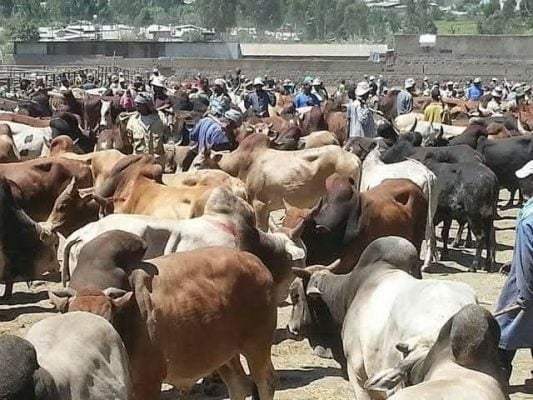The president of the Nigerian Institute of Animal Science (NIAS), Simeon Ohwofa, has described livestock production as one of Nigeria’s most overlooked economic pillars, capable of driving food security, job creation and industrial growth if given adequate attention and funding.
Speaking in an interview with LEADERSHIP in Abuja yesterday, Ohwofa said livestock is not merely an agricultural activity but a powerful economic enterprise that links crop farmers, feed millers, processors and retailers in a wide value chain that sustains millions of livelihoods.
He noted that the Nigerian Institute of Animal Science, established by an Act of the National Assembly in 2007 and amended in 2015, was created to professionalise animal production and regulate standards across the sector.
According to him, the institute has registered 2,964 professional animal scientists and 252 new members in its most recent induction. It has also certified over a hundred associate animal scientists drawn from related disciplines such as zoology and biology.
Ohwofa acknowledged that poor funding remains a major constraint to the institute’s operations and to agricultural development generally.
Regulatory activities such as farm inspection, certification and feed-mill monitoring, he explained, are cost-intensive and suffer when funds are scarce.
He urged the government to honour continental commitments such as the Maputo and Kampala declarations, which recommend that African countries allocate at least 10 percent of their national budgets to agriculture.
The NIAS president commended President Bola Ahmed Tinubu for creating the Federal Ministry of Livestock Development, noting that with clear planning and proper funding, the new ministry could work with NIAS and development partners to transform the sector.
On the long-running issue of open grazing, Ohwofa said the practice was no longer sustainable, adding that the institute advocates a shift to ranching through large-scale fodder production and water supply systems to keep animals in one location.
On export, Ohwofa said Nigeria currently produces too little even for domestic demand but could enter international markets through deliberate investment and adherence to quality standards.
“Livestock production is a very veritable economic activity if you do it right. It is one of the biggest businesses that can change a lot of academic and economic activities in Nigeria. The value chain is enormous, from feed production to abattoirs and retail and that’s why we describe it as an economic pillar that can drive food and nutritional security.
Government should provide an enabling environment, good policies, infrastructure and access to finance, while the private sector leads investment,” he said.
He further urged stronger value-chain integration among feed producers, farmers, processors and marketers, and better infrastructure, such as power and cold-chain facilities, to reduce post-production losses.
He added that the new livestock ministry provides an opportunity to correct decades of imbalance in policy and funding between crops and animals.





